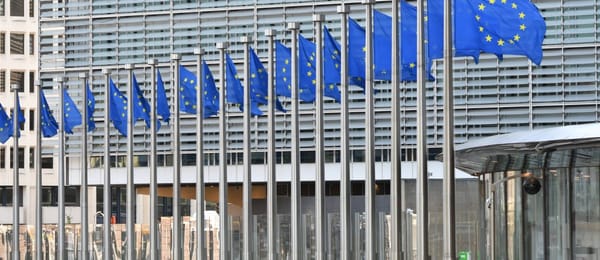
Poland leads EU funding recipients with EUR 123.3 bn in long‑term budget draft
The European Commission (EC) published long-term budget allocation plans on 17 July, showing Poland set to receive the highest national allocation under the 2028-34 Multiannual Financial Framework (MFF), totalling EUR 123.3bn.
France (EUR 90.1bn), Spain (EUR 88.1bn) and Italy (EUR 86.6bn) follow among top recipients, while Romania (EUR 60.2bn) and Hungary (EUR 37.7bn) also rank prominently. The allocations are part of the EC’s proposed national and regional partnership plans, released on 16 July.
Shift in cohesion priorities favours CEE
The EC said the distribution reflects a shift in cohesion support to strengthen resilience, accelerate convergence, and support structural transformation in newer member states. Poland will receive EUR 112.6bn in general allocations, EUR 8.8bn from the Social Climate Fund (SCF), and EUR 2bn for migration, security and home affairs.
Romania’s total of EUR 60.2bn includes EUR 55.7bn in general funding and EUR 4.2bn in SCF allocations. Hungary is set to receive EUR 37.7bn, while Czechia will receive EUR 29.4bn.
The SCF will provide major support to Italy (EUR 5.4bn), Spain (EUR 5.3bn), France (EUR 5.6bn) and Germany (EUR 4.1bn), complementing their general cohesion funding. Greece was allocated EUR 49.2bn in total, including EUR 3.5bn for migration and border management. Portugal will receive EUR 28.4bn overall, including EUR 2.1bn from the SCF.
Migration funds skewed towards large and frontier states
Germany will receive the largest migration and security envelope at EUR 4.1bn, followed by Greece (EUR 3.5bn), Italy (EUR 2.9bn), Spain (EUR 2.5bn), and France (EUR 2.2bn). The EC said allocations were based on past migration flows and structural pressures.
Bulgaria (EUR 22.3bn), Croatia (EUR 16.8bn) and Slovakia (EUR 17.7bn) also rank among top recipients relative to population, while Slovenia is due to receive EUR 5.4bn.
Baltic, Nordic, Benelux allocations remain modest
Lithuania was allocated EUR 14.2bn, while Latvia (EUR 9.3bn) and Estonia (EUR 6.5bn) received the lowest totals among central and eastern European states. Denmark (EUR 7.6bn), Finland (EUR 9.7bn) and Sweden (EUR 10.3bn) will receive moderate levels of support.
The Benelux states were among the smallest recipients, with Belgium to receive EUR 8.8bn, the Netherlands EUR 8.5bn, and Luxembourg EUR 0.6bn.
Budget to be debated during Belgian EU tenure
The EC presented its MFF proposal on 16 July. Austrian EU Budget Commissioner Johannes Hahn said the allocation methodology was based on “performance, needs and strategic orientation”.
Final negotiations are expected to begin under Belgium’s EU Council Presidency in early 2026. Net contributors are likely to scrutinise the shift in funds, while recipient states are expected to call for flexible disbursement and simplified compliance mechanisms.

